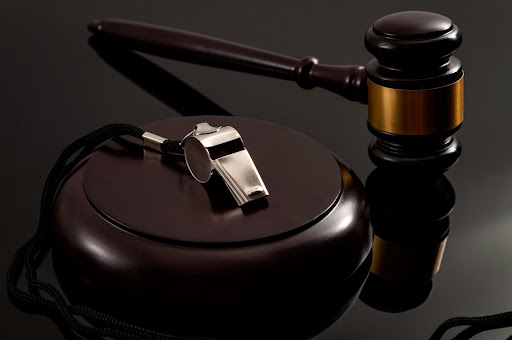The experienced Chicago whistleblower attorneys with Horwitz, Horwitz & Associates represent whistleblowers in qui tam lawsuits. Successful qui tam lawsuits can help stop fraud, recover large sums of money for the government, and bring significant financial rewards for whistleblowers.
If you are aware of healthcare fraud, defense contractor fraud, or other types of fraud against the government, you may have a qui tam whistleblower case. Call us at (800) 985-1819 today.
What are qui tam whistleblower lawsuits?
“Qui tam” is an abbreviation of the Latin phrase, “qui tam pro domino rege quam pro se ipso in hac parte sequitur,” which, roughly translated, means “he who brings an action for the king as well as for himself.”
Qui tam lawsuits are whistleblower lawsuits brought under the federal False Claims Act. The act rewards whistleblowers when the government recovers funds lost to fraud. Qui tam lawsuits provide a powerful way for whistleblowers to stop different types of financial fraud against the government.
Successful qui tam cases allow the government to recover funds that have been stolen from the taxpayers and U.S. Treasury. The False Claims Act rewards and provides job protection for whistleblowers who bring successful qui tam lawsuits.
Types of whistleblower cases
When you choose a Chicago whistleblower lawyer with Horwitz, Horwitz & Associates, you’ll be working with someone who has a deep understanding of this area of the law. The following is a brief look at some of the types of whistleblower cases we’ve handled in the past.
Healthcare fraud
Managed care organizations, hospitals, and other healthcare entities can commit fraud in many different ways. A hospital, for example, may issue a bill for services it didn’t provide. A medical device manufacturer could charge for unnecessary equipment, or take kickbacks from a supplier.
Government procurement fraud
This type of case typically involves multiple perpetrators, since so many people look at government contracts. Examples of procurement fraud include excluding qualified businesses from bidding for jobs, leaking information regarding bids, bribery, conflict of interest, and more.
Other examples involve abuse of change orders. These occur when bidders initially submit a very low bid to secure a contract. Once they do, they then submit excessive amounts of change orders. They do this to increase their prices and maximize their profits.
Tax fraud
The IRS whistleblower program offers monetary incentives to those who report tax fraud. If the amount of fraud is more than $2 million, whistleblowers could obtain as much as 30%. If the fraud involves a person whose gross income is less than $200,000, the whistleblower will receive up to 15 percent of the amount recovered. Forms of tax fraud include preparing or filing a false return, failure to file a return, and many others.
Environmental fraud
CERCLA (the Comprehensive Environmental Response, Compensation and Liability Act) sets aside funds to clean up areas contaminated by toxic waste. These are also known as “Superfund” sites. Contractors who perform substandard work, falsely certify they’re in compliance with their contracts, and commit other violations can be found guilty of environmental fraud.
Securities fraud
The U.S. Securities and Exchange Commission (SEC) encourages whistleblowers to report instances of securities fraud, market manipulation, insider trading, and many other types of violations.
Defense contractor fraud
Forms of defense contractor fraud include substituting an inferior product for one contractually agreed upon, as well as charging the government for time working on a commercial contract. The latter is often referred to as “improper cost allocation.”
False Claims Act violations
The False Claims Act, as mentioned above, is a broad whistleblower law that basically covers all acts designed to defraud the U.S. government. Many violations of the Act occur in the healthcare industry. Examples include doctors charging for services they didn’t perform, and nursing homes charging for care they didn’t provide.
How qui tam whistleblower lawsuits work
Under the False Claims Act, a private citizen may sue a business or individual that is defrauding the government to recover funds on behalf of the government. A qui tam lawsuit is filed under seal. Filed under seal means it is kept a secret to give the Justice Department time to investigate the allegations. Not even the business or individual being accused of fraud is told about the lawsuit.
The government investigates the allegations made by the whistleblower, with the assistance of the whistleblower’s attorney, in many cases, and decides whether to intervene (join) in the case. The government only intervenes in a small percentage of qui tam cases. If the government does not intervene, whistleblowers have the option to proceed on their own.
Under the False Claims Act, qui tam cases are sealed for 60 days. Courts generally extend the seal many times to allow the government time to investigate the allegations, which can take years. The government may ask the court to partially lift the seal for the purpose of discussing a settlement with the party accused of fraud. Most successful qui tam cases are resolved through settlement rather than in trial.
Whistleblower rewards in a qui tam lawsuit
The amount of the reward a whistleblower receives depends on several factors. Some factors include:
- The number of funds recovered
- Whether or not the government intervenes in the case
In cases where the government intervenes and recovers funds through settlement or trial, the whistleblower (known as the relator) is entitled to 15 to 25 percent of the recovery. In successful cases where the government does not intervene, the whistleblower reward is 25 to 30 percent of the recovery.
Benefits of working with a whistleblower attorney
There are a lot of reasons you should consider working with a skilled Chicago whistleblower lawyer. Here are just some of the many advantages.
Legal protection
Many whistleblowers are hesitant to come forward because they’re concerned with the consequences of potential retaliation. However, an attorney can protect your rights both during and after your case. A legal representative will ensure you are treated fairly at every turn.
Identity protection
Experienced attorneys know how important it is to maintain client confidentiality throughout the reporting process. At Horwitz, Horwitz & Associates, we’ll make sure your identity remains protected, and that all of your information remains completely confidential.
Experience and knowledge
Our whistleblower attorneys know how to make sure fraudulent behavior is reported in the correct way. We’ll provide you with a roadmap of the legal process, making sure all of the details are followed to the letter – and improving your chances of recovery in the process.
Why hire Horwitz, Horwitz & Associates
As trusted Chicago personal injury lawyers, our firm has a track record that speaks for itself. With decades of experience and extensive legal knowledge, our lawyers have been awarded membership in the Multi-Million Dollar Advocates Forum and named among National Trial Lawyers’ Top 100 Trial Lawyers.
Our Chicago whistleblower attorneys help stop fraud
At Horwitz, Horwitz & Associates in Chicago, we have a reputation for recovering significant amounts for our clients. Speak with our experienced Chicago whistleblower lawyers about filing a qui tam whistleblower lawsuit.










